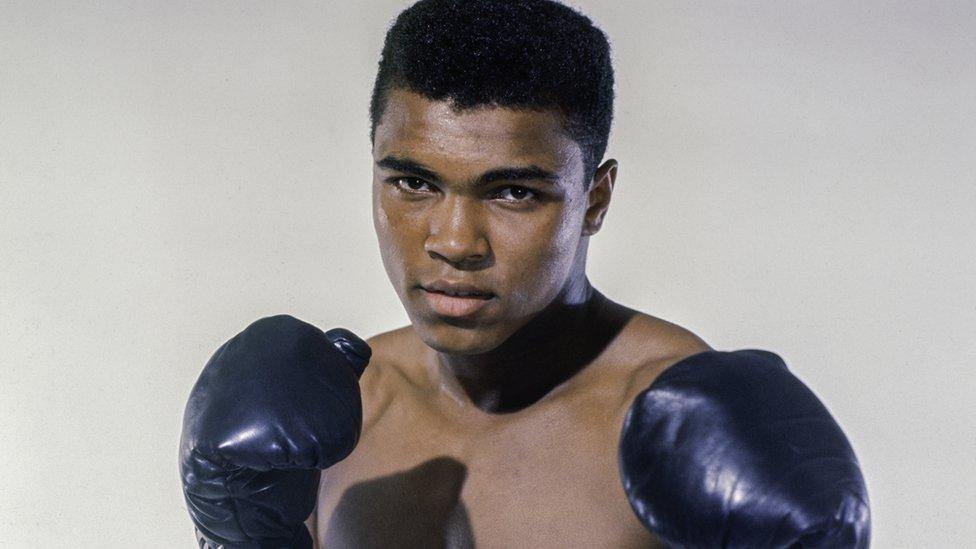How do you decide on a baby name?
- Published
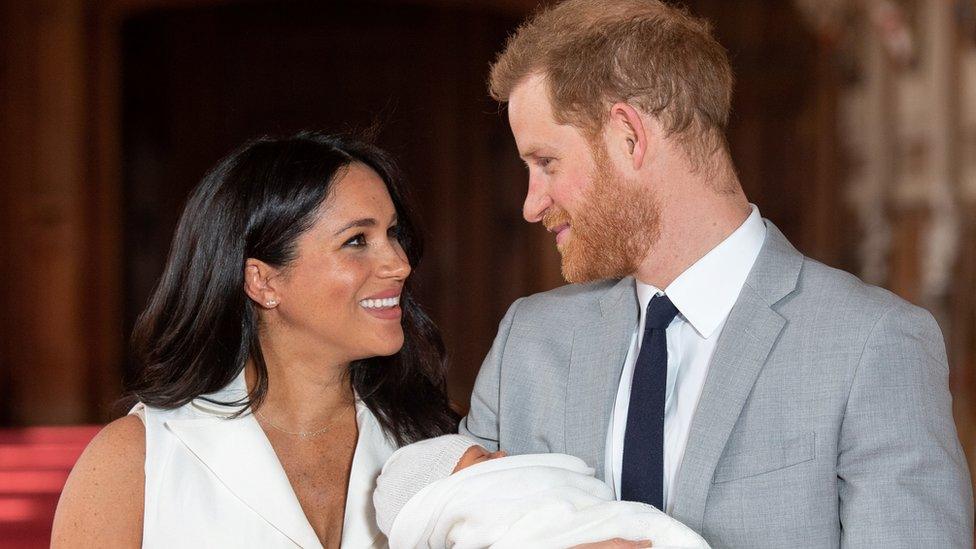
Prince Harry and the Duchess of Sussex revealed they had named their baby Archie Harrison
Naming a baby is a big decision. Even if you're not a member of the Royal Family and your choice won't be shared with millions, choosing the right name is important.
In England and Wales, new parents have 42 days to register the name after the baby is born, meaning the Duke and Duchess of Sussex could have had six weeks of thinking time if they had needed it before choosing Archie Harrison.
Missing this deadline - as was reportedly the case, external for former celebrity couple Liam Payne and Cheryl Cole in 2017 - could incur a fine of up to £200.
In other countries the naming deadline is longer - parents in Sweden have three months to decide, while those in Denmark have half a year.
The meaning behind Archie and Harrison
Sarah Redshaw, managing editor of parenting website BabyCentre, urged parents to spend some time alone testing the name they choose.
"You don't want to regret it a year down the line," she said. "We sometimes see posts that they have named a baby, then a year down the line they don't like it."
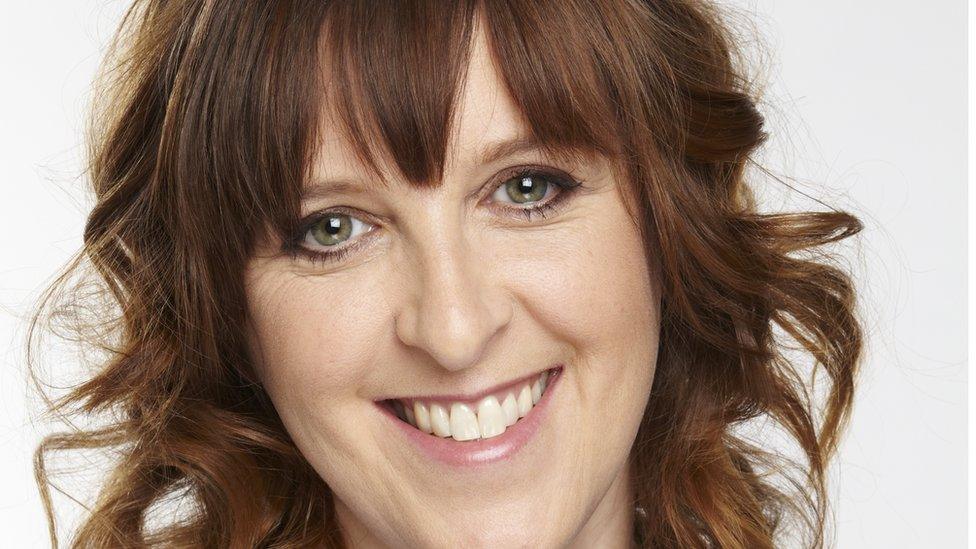
Sarah Redshaw, from BabyCentre, said she has noticed popular culture influencing baby names as well, for example more babies named Arya after TV show Game of Thrones
Ms Redshaw added that her first baby remained unnamed for three weeks as she and her husband disagreed.
"I wore my husband down," she said. "We had a shortlist of about five or six but there was one I certainly preferred more than the others. In the end, he chose the middle name."
'Named after chocolate'
Other new parents take different approaches to naming their child.
Alan Marritt, 79, from Leeds, said he called his daughter Christine Donna, so her initials - with her surname - spelt out CDM.
Why? "For the simple reason her mum was eating a hundred weight of Cadbury's dairy milk chocolate before the child was born," he explained. "I bought a whole box of it so I didn't have to go out when it was raining."
He also had a novel way for naming his second daughter. "The other one was born a minute after midnight so we called her Andrea," he said, so the initials spelt out AM.
Donna Slater, 40, who comes from Swansea but now lives in Bristol, came up with the name for her firstborn by scrolling through the Welsh rugby team and reading out each name to her husband.
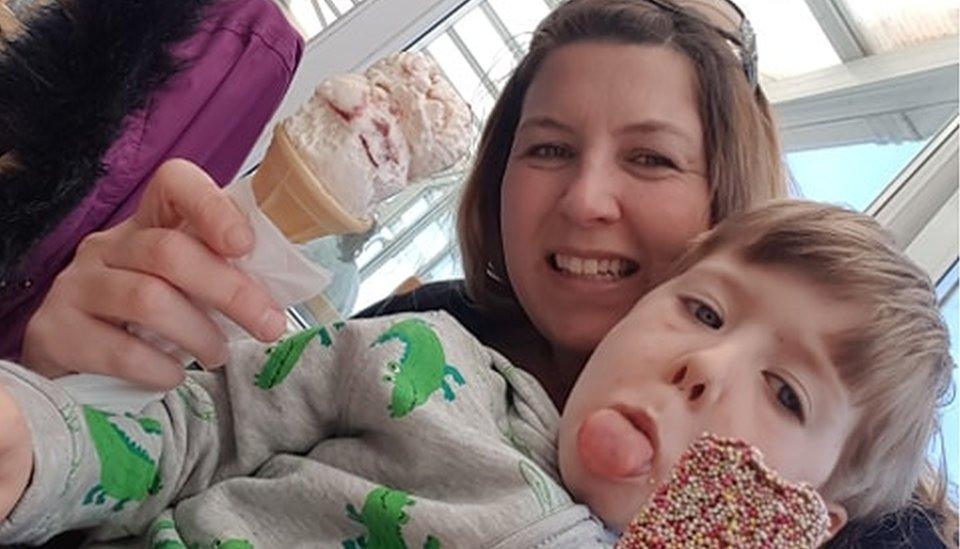
Welsh mum Donna Slater used her country's rugby team for inspiration
"I was kind of surreptitiously on my phone looking at the Welsh rugby team. 'What about Gareth?' and he'd say 'no, I don't like that one'".
She eventually got to Toby - after player Toby Faletau - which they both liked. Donna did not tell her English husband how she'd come up with the name until weeks later.
And when player Faletau later became known by his actual Tongan name Taulupe, Donna joked: "We thought should we update our child's name?"
Richard Jones, a university lecturer from Salford, said he and his wife had an "exhaustive list" of criteria for naming his first daughter.
"We were really keen to have a name that was unusual, but not wacky. We didn't want one that there was going to be a whole class full of them. We also didn't want to go for a made-up one."
The couple ruled out anything in the top 100 most popular names list and, because he is Scottish and his wife is Welsh, wanted the name to originate from either of those places.
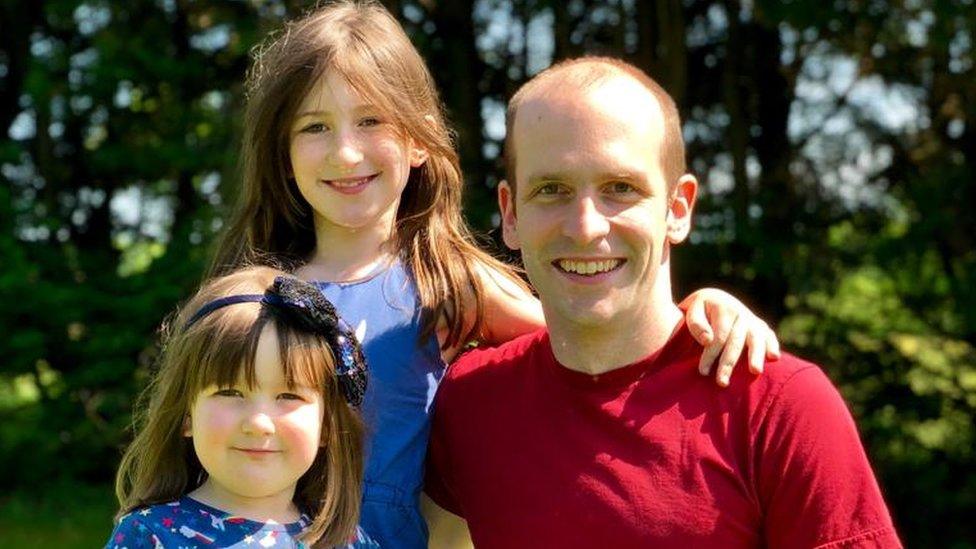
Richard Jones with daughters Gwendolen (Gwen), nine, and Callista (Callie), five
It needed to be easily shortened, both the short and long names had to work with both the single and double-barrelled versions of their surname and it couldn't start with the same initial as the mum or dad.
"But apart from that we didn't really think too much about it," he joked.
They were happy with their choice of Gwendolen - Gwen for short - because it's unique but a "name that everyone knows".
Meanwhile, within the Sikh tradition parents have part of the name decided for them.
During a naming ceremony, the Sikh holy scripture - the Guru Granth Sahib - is randomly opened. On whatever page it falls, the first letter of the first word of that passage will be the first letter of the baby's name.
In terms of the name itself, the UK's rules on baby names are among the most liberal in the world. According to the General Register Office, there are no restrictions on parents in the UK when naming their child - except for in exceptional cases, such as a name which could be deemed offensive, when an official could refuse to register it.
But that does not mean anything can be allowed. In 2016, a mother in Powys was banned from naming her baby daughter Cyanide - a type of poison which Adolf Hitler took before shooting himself.
In that case, Lady Justice King said the courts would intervene to prevent a parent naming a child "in only the most extreme cases".
Denmark is known for its strictest naming laws, which was set up to protect the country's cultural heritage from odder name choices and spellings. Parents have a list of names, external from which they must choose - or seek permission from the government and local church.
Unisex names are also not allowed and each name on the list is assigned to a gender.
With the arrival of another royal baby due in the UK, Reality Check takes a look at baby naming rules around the world
Meanwhile, in Germany, the parents' chosen name must also indicate the gender - and needs to be approved by the registry office, the Standesamt, in the area of the birth.
In the US, parents are mostly free to name their child whatever they like - although there are restrictions which depend on the state. Some states have limits on how long the name can be, or ban the use of numbers or obscenities.
More recently, so-called "baby name consultants" have reportedly cropped up,, external offering help to find a name.
In Egypt, a naming ceremony is held seven days after the baby is born, with three candles - each representing a name- set alight. The one that burns the longest is the winning name.

Would Harry and Meghan have rules over baby name?
Joe Little, managing editor of Majesty magazine, said the couple had a lot more freedom than the Duke and Duchess of Cambridge, because of a "bit more distance between this new baby and the throne".
Speaking before the name was announced, Mr Little said: "William and Catherine, when naming their baby, were aware their first born was destined to be king one day.
"Harry, as time goes on, will move from being sixth in line to much further down so the likelihood of many of his offspring on the throne will become more and more remote.
"One thing to bear in mind, this child is still going to be quite high profile. He will never lead a totally private life, so convention still needs to be adhered to but to a lesser degree."

- Published8 May 2019
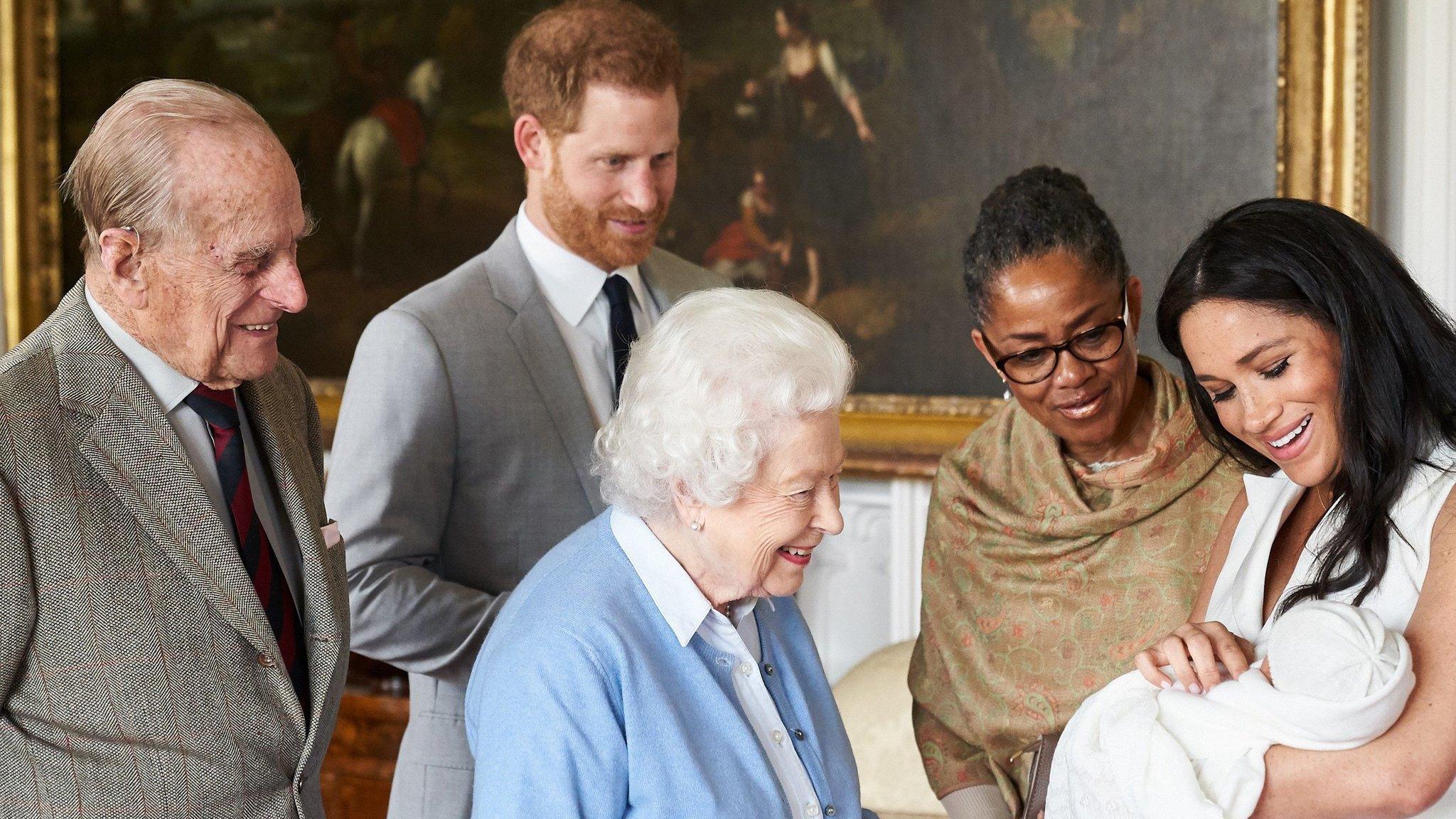
- Published7 May 2019
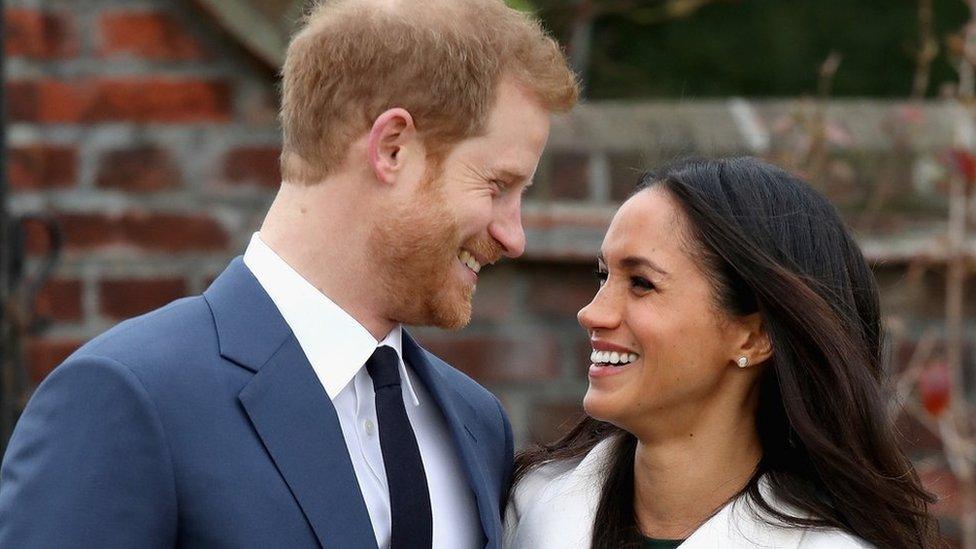
- Published21 September 2018

- Published26 September 2018
